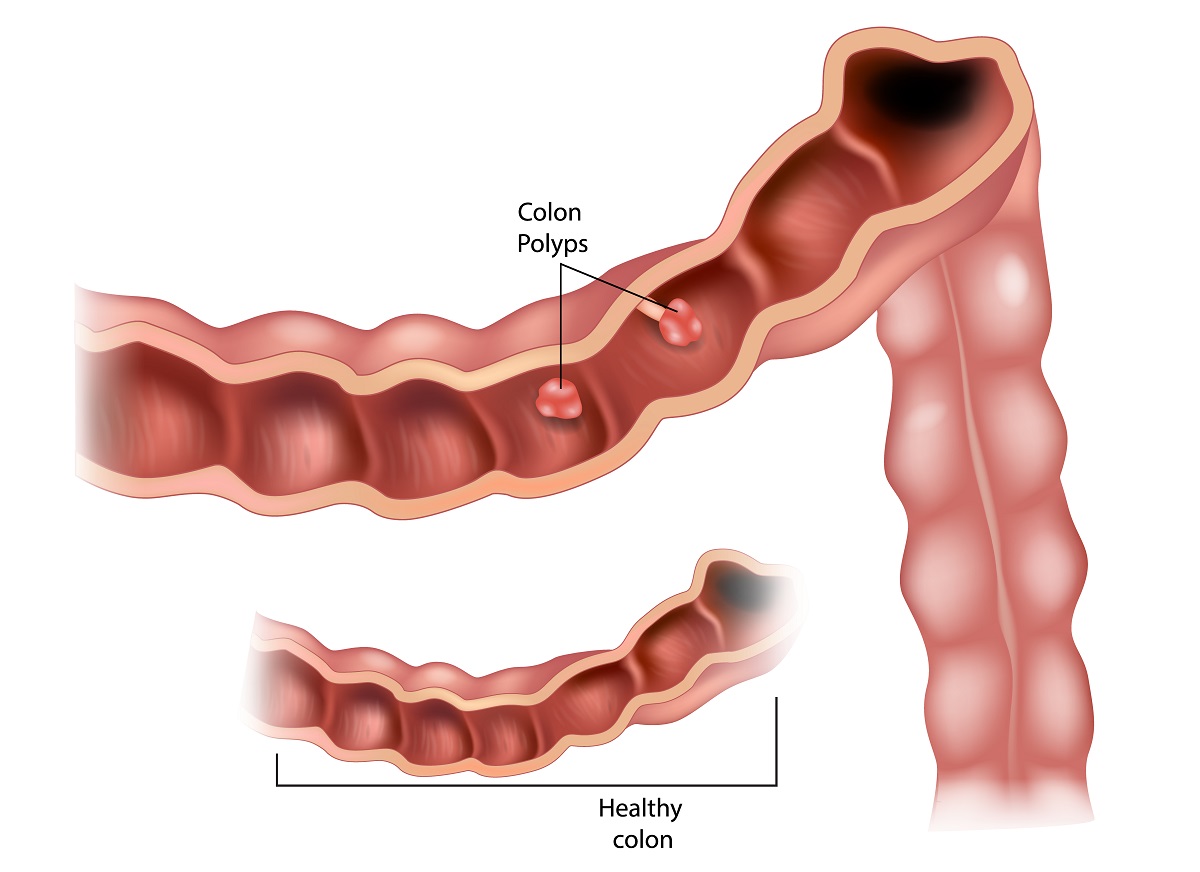
What Are Colon Polyps?
Colon polyps fall into two primary categories. Non-neoplastic colon polyps seldom develop cancer. These include the inflammatory polyps often accompanying conditions such as Crohn’s disease or ulcerative colitis. Neoplastic polyps, known as adenomas, have a greater potential for malignancy.
Polyp size varies from under a quarter-inch to several inches.
What Are the Risk Factors for Colon Polyps?
Polyps usually develop in those aged 50 and up. There is often a genetic factor involved, so a family history of polyps or colon cancer increases the risk. African-Americans have a higher incidence of polyps and colon cancer. Other risk factors include:
- Alcohol consumption
- Diabetes
- High-fat diet
- Lack of fitness
- Low-fiber diet
- Obesity
- Smoking
Those at average risk for colon polyps should start screenings at 45. Those with an elevated risk may need to start screenings at an earlier age.
Do Colon Polyps Have Symptoms?
Many people do not experience any symptoms of colon polyps. The growths are usually found during an examination.
Certain symptoms common to various colorectal issues may indicate the presence of polyps. These include:
- Abdominal pain
- Change in stool color
- Rectal bleeding
- Excess mucous in the stool
- Constipation or diarrhea lasting more than seven days
- Shortness of breath or fatigue
Are Colon Polyps Cancerous?
Most colon polyps are not cancerous. The larger the polyp, the more likely it could prove malignant. Colon cancer is the third most common cancer in the U.S.
All colon polyps are sent to a laboratory for analysis. If cancer is detected, your doctor will discuss the next steps. Prompt treatment for colon cancer can save lives.
How are Colon Polyps Treated?
The majority of colon polyps are removed during a colonoscopy. They are removed either via a wire loop or a forceps in a procedure called a polypectomy. It makes sense to remove all polyps because there is no current test available to determine if a polyp will become cancerous. Large polyps may require another colonoscopy for complete removal. In rare cases, surgical removal is necessary.
Removal eradicates the treated polyps, but roughly one-third of patients eventually develop new ones. Patients should schedule follow-up tests every three to five years to check for new polyps.
For More Information, Arrange a Consultation
If you would like more information about colon polyps, schedule a personal consultation with the team at Piedmont Colorectal Associates. Contact our Atlanta practice today to make an appointment and have your questions and concerns addressed.

